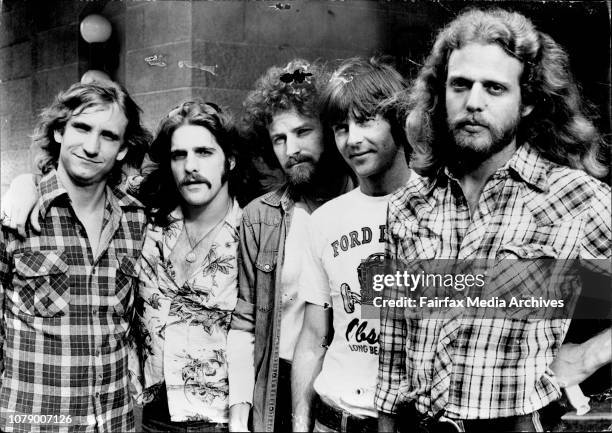
A Tender Confession of Emotional Vulnerability Amid the Slow Dissolution of Love
Upon its release in February 1980, “I Can’t Tell You Why” by the Eagles soared to No. 8 on the Billboard Hot 100, offering listeners a subdued yet profoundly moving glimpse into the emotional intricacies of a relationship on the brink. Featured on the band’s final studio album before their initial breakup, The Long Run, the song represented a departure from their signature country-rock stylings, embracing a smoother, more R&B-inflected sound. As one of the rare Eagles tracks led vocally by bassist Timothy B. Schmit, who had recently joined the band following Randy Meisner’s departure, the track carved out its own intimate corner in the band’s storied catalog—a quiet storm of confession and fragility.
Though often overshadowed by the grander anthems and acerbic wit that define much of The Long Run, “I Can’t Tell You Why” stands apart for its remarkable restraint. The lyrics are spare, almost minimalistic: “Every time I try to walk away / Something makes me turn around and stay.” There is no climactic realization or poetic resolution—only an honest admission of helplessness in the face of emotional entanglement. It’s this aching simplicity that gives the song its enduring weight. Schmit’s gentle falsetto delivers these lines with such plaintive sincerity that they feel like fragments of a private conversation overheard in the dead of night.
The composition itself furthers this mood—lush electric piano chords drift like smoke through the verses, while Don Felder’s blues-inflected guitar solo weeps with understated eloquence. Beneath it all, Joe Walsh’s rhythm guitar and Glenn Frey’s production lend a polished yet soulful undercurrent, drawing heavily from soft rock and late-’70s blue-eyed soul. In this way, “I Can’t Tell You Why” bridges genre boundaries as effortlessly as it navigates emotional ones.
What makes the song particularly resonant is its refusal to moralize or even explain. This is not a song about who’s right or wrong—it is about what remains unsaid when love erodes but lingers nonetheless. The narrator does not plead for forgiveness nor offer blame; instead, he offers only his bewildered presence. “I don’t know why,” he repeats, as though hoping that vulnerability alone might suffice where reason has failed.
This ambiguity captures something rare in popular music: the acknowledgement that not all heartbreak comes from betrayal or cruelty—sometimes it comes simply from being unable to connect despite every effort. In this light, “I Can’t Tell You Why” becomes less a breakup ballad and more a portrait of emotional paralysis, a meditation on those quiet moments when silence says more than words ever could.
In a career punctuated by stadium-sized epics and sharp-tongued commentary on American life, the Eagles’ most intimate moment might also be their most timeless. With “I Can’t Tell You Why,” they gave voice to something elusive—the ache of knowing love is slipping away and not being able to articulate why. It remains one of their most emotionally raw and musically elegant achievements: a soft-spoken masterpiece wrapped in satin tones and open wounds.